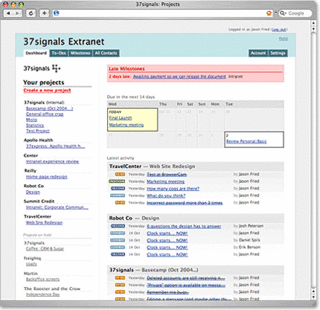Web applications of the sort we're all familiar with: Gmail, Flickr, and Bloglines, as well as other applications that are making the Web an ever richer environment for getting stuff done. (And ideally all Ajaxed up to provide an experience closer to that of traditional desktop apps.)
A local Web server to handle the data delivery and content display from the local machine to the browser. This local server will likely be highly optimized for its task, but would be capable of running locally installed Web applications (e.g. a local copy of Gmail and all its associated data).
That's it. Aside from the browser and the Web server, applications will be written for the WebOS and won't be specific to Windows, OS X, or Linux. This is also completely feasible, I think, for organizations like Google, Yahoo, Apple, Microsoft, or the Mozilla Foundation to make happen.
Compared to "standalone" Web apps and desktop apps, applications developed for this hypothetical platform have some powerful advantages. Because they run in a Web browser, these applications are cross platform (assuming that whoever develops such a system develops the local Web server part of it for Windows, OS X, Linux, your mobile phone, etc.), just like Web apps such as Gmail, Basecamp, and Salesforce.com. You don't need to be on a specific machine with a specific OS...you just need a browser + local Web server to access your favorite data and apps.

More: http://www.kottke.org/05/08/googleos-webos.






